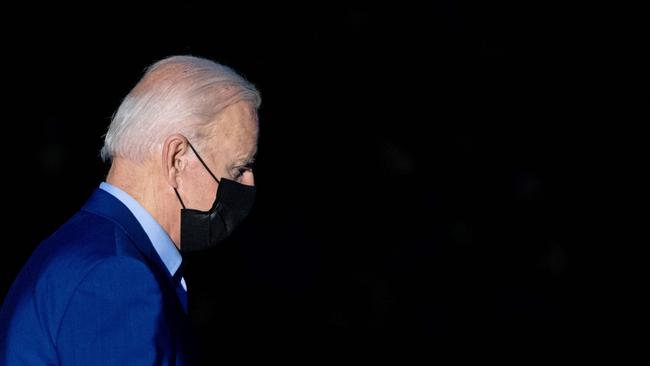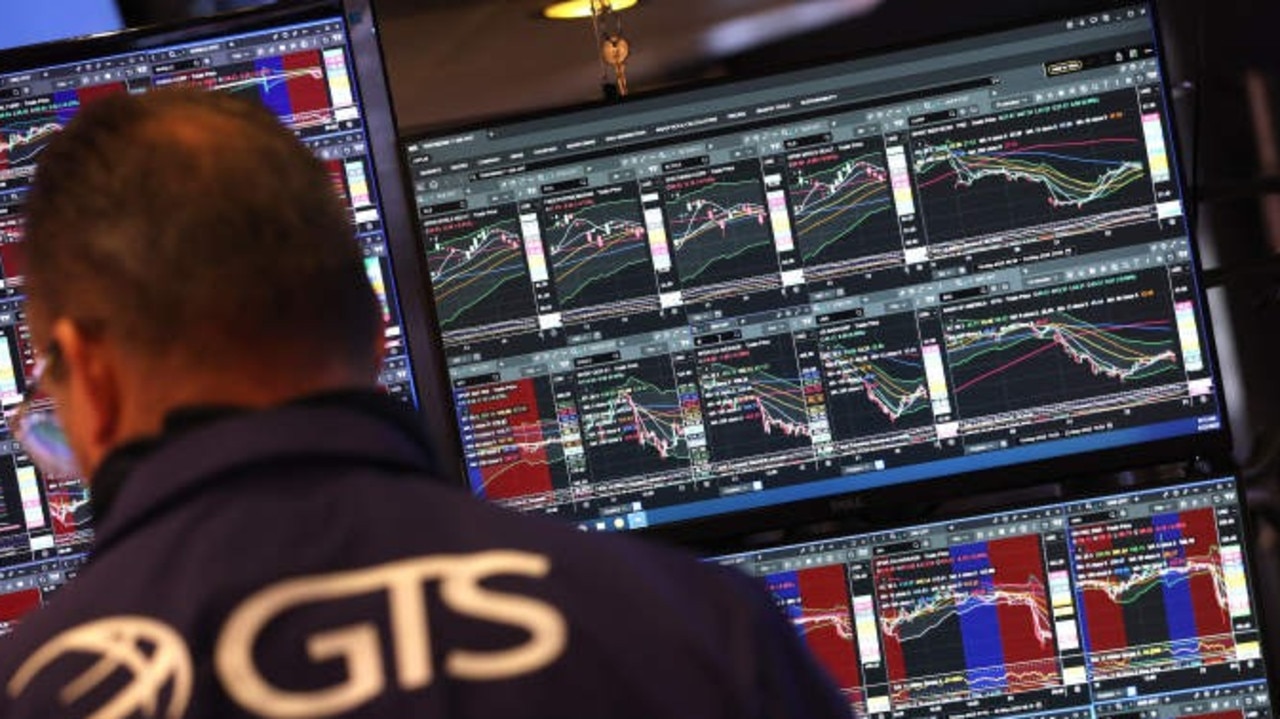Biden’s vaccination mandate hardly unifies Americans
Many people, thankfully, are happy to be vaccinated against Covid-19, and happy to recommend it to their friends and family, but draw the line at forcing people to take it.

We’ve all learned a lot about ourselves during the pandemic, socially and politically: our attitude to risk, our willingness to tolerate different points of view and the extent to which we believe human rights can be suspended for the supposed public good, however popular.
But you probably didn’t know you were an anti-vaxxer. Many people, thankfully, are happy to be vaccinated against Covid-19, happy to recommend it to their friends and family, but draw the line at forcing people to take it. That hardly has been an unusual position in liberal democracies, which typically have eschewed forcing medical treatments.
US President Joe Biden took an almighty gamble last week announcing what amounts to a vaccine mandate for 100 million workers (although not congressional leaders and their staff).
All employers with more than 100 staff members will be required to ensure their employees are vaccinated, Biden said, as part of a six-point plan to fight the third wave of Covid-19 and distract attention from the withdrawal from Afghanistan.
It’s no surprise about half the US population, having been bombarded with Covid fear porn for almost 18 months, is in favour of vaccine mandates (depending on how the question is asked), but a large minority, at least a third, remains stridently opposed.
“We’ve been patient, but our patience is wearing thin and your refusal has cost all of us,” Biden said, in effect threatening the 80 million Americans yet to be vaccinated and pitting the majority against a large minority for the first time in generations.
It’s a strange move for a president who promised to unify Americans. And it’s not worth the extra social division and bureaucracy to implement and maintain the integrity of a vaccine mandate when fake vaccine certificates are readily available.
A large enough number of Americans will be vaccinated without mandates. About 55 per cent are already fully vaccinated but, more important, 93 per cent of those over 65 have received at least one dose of Pfizer, Moderna or Johnson & Johnson vaccine.
Vulnerable groups have every private incentive to seek the vaccine already. Those who irrationally do not may become sick and take up scarce medical resources – which, by the way, we also provide to drug addicts and the obese, whose choices also can lead to health problems. That’s one of the prices of living in a free society.
Biden’s top health adviser, Anthony Fauci, and other experts have said herd immunity would be reached when 60 to 70 per cent of the population was immune through vaccination or having recovered from Covid-19. But these thresholds were spat out of models that assumed vaccines would stop all transmission.
Unfortunately, we now know the Covid-19 vaccines don’t. Indeed, deaths from Covid-19 were higher in the US during the first weekend this month than they were during the corresponding weekend last year, when no one was vaccinated.
The benefits of vaccines comes not from throttling Covid transmission – clearly that’s never going to happen – but from making severe illness or death less likely for vulnerable individuals.
States and businesses have promised to challenge the Biden mandate. Their opponents point to a critical 1905 US Supreme Court decision that supported the right of Massachusetts to issue a $US5 fine to people who refused to be vaccinated against smallpox.
“In every well-ordered society charged with the duty of conserving the safety of its members the rights of the individual in respect of his liberty may at times, under the pressure of great dangers, be subjected to such restraint, to be enforced by reasonable regulations, as the safety of the general public may demand,” the judges said, noting smallpox was an epidemic that “imperilled an entire population”.
That’s perfectly reasonable, although the judgment was used in 1927 to uphold Virginia’s compulsory sterilisation of American women with intellectual disabilities “to promote the health of the patient and the welfare of society”. Sound familiar?
Biden’s mandate is far more sweeping than was the regulation in Massachusetts. For a start, paying $US150 ($204), the value of $US5 today, was a lower penalty than being sacked, which is what 100 million workers face if they refuse to be vaccinated against Covid-19.
And there’s a question of proportion. In the history of pandemics Covid-19 is a mosquito bite compared with smallpox, which had an infection fatality rate about 100 times worse than Covid-19 and left survivors horribly disfigured.
The reason a lot of people, more than 4.5 million, have died from or with Covid-19 during the past 18 months is because the world has a lot of people, almost eight billion, in it. Any new disease, even with a tiny infection fatality rate, is going to produce big, scary numbers.
Last year Scott Morrison backed away from an earlier promise to make vaccines “as mandatory as possible”, but the rise of Delta has terrified many Australians and Americans.
Whatever the focus groups are saying, though, following Britain, whose Health Secretary, Sajid Javid, this week ruled out vaccine mandates, would be wise for the overall wellbeing of society.
“This is not about freedom or personal choice,” Biden said, announcing his mandate. “It’s about protecting yourself and those around you.”
For a lot of happily vaccinated Americans, it still is about freedom and personal choice. Thankfully those Americans aren’t anti-vaxxers, according to Macquarie Dictionary’s more sensible definition: “A person who is part of the movement opposing vaccination for children.”




The American Merriam-Webster dictionary defines an anti-vaxxer as a person who is “opposed to vaccination or opposed to laws that mandate vaccination”.